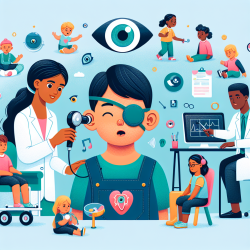In the world of speech therapy, especially when working with children with autism or managing Individualized Education Programs (IEPs), community support can make a significant difference. As a speech therapist, feeling connected to a supportive community not only enriches your professional life but also enhances the quality of care you provide to your students.
At TinyEYE, we understand the importance of fostering a strong, supportive network for speech therapists. Here are some ways to build and maintain a thriving professional community:
- Join Professional Organizations: Becoming a member of professional organizations like the American Speech-Language-Hearing Association (ASHA) provides access to resources, networking opportunities, and professional development.
- Participate in Online Forums: Engage in online forums and social media groups where speech therapists share experiences, advice, and support. These platforms can be invaluable for exchanging ideas and staying updated on the latest practices.
- Attend Conferences and Webinars: Regularly attending conferences and webinars helps you stay informed about new research, techniques, and technologies in speech therapy. It also offers opportunities to connect with peers and experts in the field.
- Collaborate with Colleagues: Working closely with other therapists, educators, and healthcare professionals can provide a well-rounded approach to student care. Collaboration ensures that all aspects of a student’s IEP are addressed effectively.
- Utilize Online Therapy Platforms: Platforms like TinyEYE offer not only the tools for effective therapy but also a community of therapists who can provide support and share best practices.
Building a strong community is essential for personal and professional growth. By connecting with others who share your passion for speech therapy, you can create a network that supports and uplifts each other, ultimately benefiting the students you serve.
Remember, a thriving community of speech therapists can make a world of difference in the lives of children with autism and those with specific IEP needs. Let’s continue to support each other and grow together.










